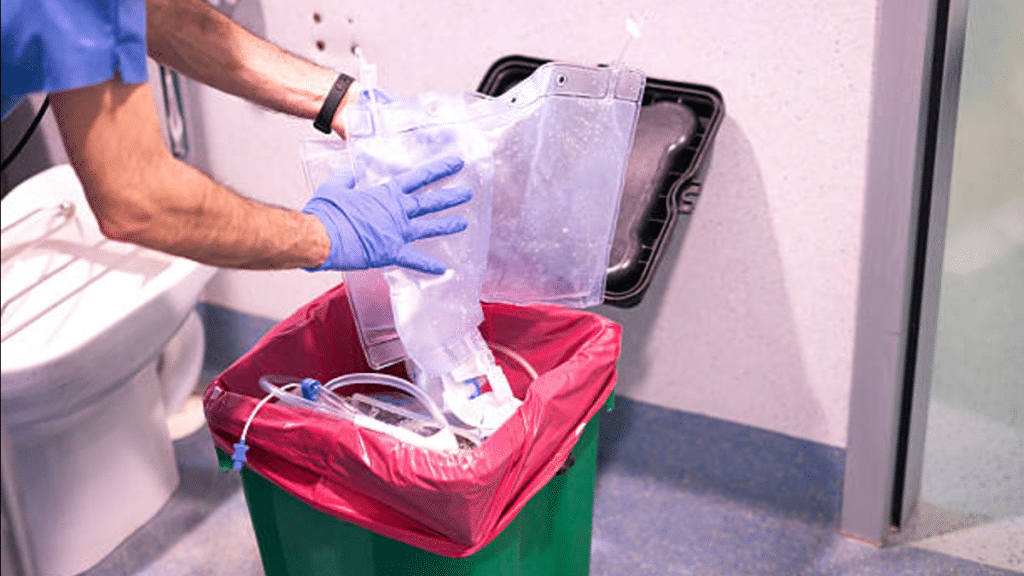In any healthcare, laboratory, or industrial setting, the safe management of hazardous waste is not just a regulatory requirement—it’s a critical component of workplace safety and public health. Biohazard and pharmaceutical waste, if not properly handled, can pose serious risks to employees, patients, and the environment. Implementing effective protocols for biohazard waste pickup and pharmaceutical waste management is essential for organizations that want to maintain compliance and minimize liability.
This comprehensive guide explores the importance of proper waste segregation, the role of specialized waste services, and the benefits of implementing a well-structured waste management program in your workplace.
Understanding Biohazard and Pharmaceutical Waste
What Is Biohazard Waste?
Biohazard waste refers to any material that contains potentially infectious agents or materials. This includes:
- Contaminated sharps like needles and scalpels
- Human blood and bodily fluids
- Used personal protective equipment (PPE)
- Pathological waste such as tissues or organs
- Laboratory cultures and stocks
This type of waste must be carefully handled to prevent the spread of disease and contamination.
What Is Pharmaceutical Waste?
Pharmaceutical waste includes expired, unused, or contaminated medications and vaccines. It can also encompass items like:
- Chemotherapy agents
- Controlled substances
- Over-the-counter medications
- Prescription drugs
Improper disposal of pharmaceutical waste can lead to environmental pollution and pose dangers to human and animal health.
The Importance of Proper Waste Segregation
One of the foundational steps in managing hazardous waste is proper segregation. When waste is sorted at the source into the correct containers, it reduces the risk of exposure and ensures that each type is treated or disposed of appropriately.
Color-Coded Systems
Most facilities use color-coded bins or containers to differentiate types of waste. For example:
- Red containers for biohazardous waste
- Yellow for chemotherapy waste
- Black for hazardous pharmaceuticals
- Blue or white for non-hazardous pharmaceuticals
Training staff to recognize and use these color codes consistently helps streamline disposal processes and reduces compliance risks.
Biohazard Waste Pickup: Why You Need a Professional Service
Outsourcing your biohazard waste collection to a certified provider ensures safe handling, transport, and disposal in accordance with local, state, and federal regulations. These services typically include:
- Regularly scheduled pickups
- Proper containment supplies
- Documentation and manifest tracking
- Secure transport to treatment or disposal facilities
Working with a reliable waste management company also minimizes the chance of regulatory violations and potential fines.
Pharmaceutical Waste Management: Reducing Risk and Liability
Improper disposal of pharmaceuticals—such as flushing them down the drain or placing them in regular trash—can have far-reaching consequences. A robust management strategy includes:
Inventory Control
Maintaining an accurate inventory of medications helps reduce waste from over-ordering and ensures proper tracking of controlled substances.
Secure Storage and Disposal
Medications should be stored in secure containers until pickup, with clear labeling and restricted access to prevent theft or misuse.
Compliance with DEA and EPA Guidelines
Pharmaceutical waste disposal must comply with regulations from agencies like the Drug Enforcement Administration (DEA) and Environmental Protection Agency (EPA). This includes proper documentation, secure transportation, and use of approved treatment facilities.
Training and Education for Employees
No waste management plan is effective without a well-informed staff. Training programs should cover:
- Identification and segregation of different waste types
- Proper use of containers and PPE
- Spill response protocols
- Legal and regulatory requirements
Periodic refreshers and updates help ensure compliance and keep safety top-of-mind in everyday operations.
Technology and Waste Tracking Solutions
Many waste management providers now offer digital tools for tracking and reporting. These systems allow organizations to:
- Monitor pickup schedules and waste volumes
- Generate regulatory compliance reports
- Receive alerts for overdue waste removal
- Reduce paperwork and human error
Technology adds transparency and helps administrators make data-driven decisions about improving waste handling practices.
Benefits of a Comprehensive Waste Management Program
Enhanced Workplace Safety
By minimizing exposure to infectious materials and hazardous drugs, you protect your employees and reduce the risk of workplace injuries.
Environmental Protection
Proper disposal ensures harmful substances do not end up in landfills, water supplies, or natural ecosystems.
Regulatory Compliance
Staying compliant with waste regulations avoids costly fines, legal action, and reputational damage.
Operational Efficiency
Streamlined waste processes reduce clutter, free up storage space, and improve workflow in busy facilities.
Conclusion
Creating a safer workplace starts with how your organization handles its most dangerous byproducts. Whether you’re dealing with needles, lab cultures, or expired medications, effective biohazard and pharmaceutical waste protocols are essential.
By investing in proper segregation, professional biohazard waste pickup services, and compliant pharmaceutical waste management strategies, you not only protect your employees but also safeguard your community and the environment. With the right systems, training, and partners in place, your facility can operate responsibly and efficiently, today and into the future.
